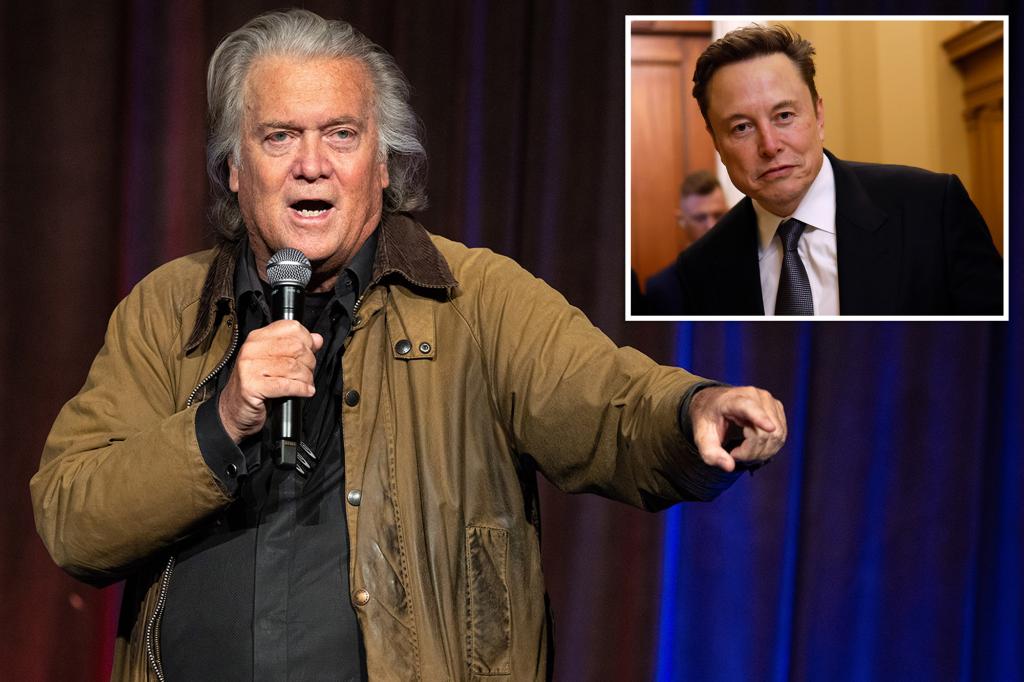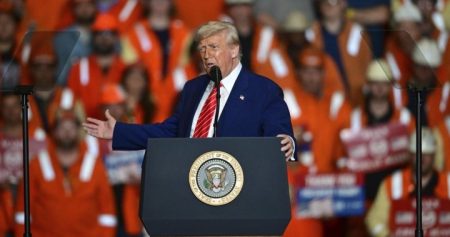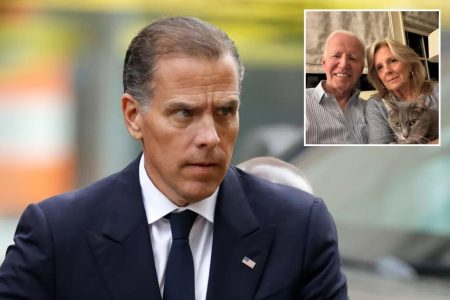Steve Bannon, the architect of Donald Trump’s 2016 populist campaign and host of the “War Room” podcast, launched a scathing attack on Elon Musk, vowing to restrict the tech mogul’s access to the White House despite Musk’s recent financial support for Trump’s presidential bid. Bannon’s fury stemmed from a clash over H1-B visas, which allow foreign workers in specialized occupations to work in the United States. Musk, a staunch defender of the program, found himself at odds with Bannon and other immigration hardliners within the MAGA movement. Bannon accused Musk of exploiting the H1-B system to benefit corporations at the expense of American workers, a sentiment he believed resonated with a broad base of the American public. This seemingly minor policy disagreement escalated into a personalized vendetta against Musk, with Bannon declaring his intention to ensure Musk wouldn’t enjoy privileged access to a future Trump White House.
The conflict over H1-B visas served as a flashpoint in a larger brewing tension between the tech industry and the more nationalist wing of the Trump movement. Bannon’s hostility towards Musk extended beyond the visa issue, encompassing deeper grievances about wealth disparity and the influence of tech billionaires. He lumped Musk in with other prominent South African-born entrepreneurs like Peter Thiel and David Sacks, accusing them of unduly influencing American politics and labeling white South Africans as “the most racist people on earth.” This attack, laced with xenophobic undertones, highlighted the inherent contradictions within the MAGA coalition, where reliance on billionaire backing clashed with the movement’s populist and nationalist rhetoric. Bannon’s outburst showcased the fragility of these alliances and the potential for internal conflict within the Trump orbit.
Bannon’s critique of Musk centered on the billionaire’s perceived self-serving motives. He accused Musk of being driven purely by the pursuit of wealth and power, arguing that his support for Trump was transactional and aimed at protecting his business interests. Bannon’s populist rhetoric frequently rails against the “globalist elite,” and Musk, despite his recent alignment with Trump, appears to have become the latest target of Bannon’s anti-establishment crusade. The irony of this situation is palpable, considering Bannon had previously lauded Musk’s potential to advance the MAGA agenda globally, particularly in Europe, due to his vast financial resources. This rapid shift from praising Musk’s potential influence to demonizing him as a self-interested manipulator underscores the inherent volatility and unpredictability of Bannon’s political maneuvering.
The complex relationship between Musk and Trump adds another layer of intrigue to this saga. Musk, initially a supporter of other Republican candidates like Ron DeSantis, eventually threw his weight behind Trump after the latter’s assassination attempt. He became a frequent visitor to Mar-a-Lago and was even jokingly tapped by Trump to lead a fictional “Department of Government Efficiency.” Democrats, meanwhile, attempted to exploit this burgeoning relationship, labeling Musk “President Musk” in an attempt to sow discord between the two powerful figures. However, Trump seemingly ignored the provocation, leaving open the question of how genuine the alliance between him and Musk truly is.
Complicating matters further is a social media incident where Musk appeared to agree with a post suggesting Americans were too “retarded” to perform the jobs requiring H1-B visas. While Musk later deleted the post, Bannon seized upon the opportunity to accuse Musk of insulting his followers. This incident further fueled Bannon’s anger and reinforced his perception of Musk as an elitist out of touch with the concerns of ordinary Americans. The episode also highlighted the potential for social media missteps to escalate tensions within the already fractured political landscape.
The Bannon-Musk feud encapsulates a larger struggle within the conservative movement and the GOP, highlighting the uneasy alliance between populist nationalists and the business elite. While both sides share some common ground, their underlying philosophies and priorities often clash, leading to tension and infighting. Bannon’s attack on Musk represents a dramatic rupture in this uneasy alliance, exposing the fault lines that run through the contemporary right-wing political landscape. Whether this feud will escalate further or eventually subside remains to be seen, but it undoubtedly underscores the inherent instability and unpredictability of the political landscape in the age of Trump. The episode also raises questions about the long-term viability of the MAGA movement’s reliance on billionaire benefactors like Musk, particularly if those figures find themselves at odds with the movement’s core ideologues like Steve Bannon.










